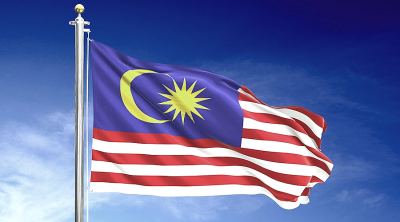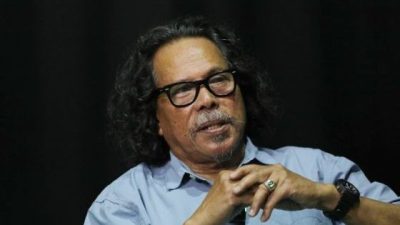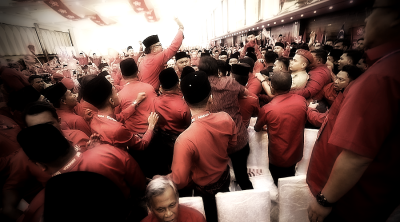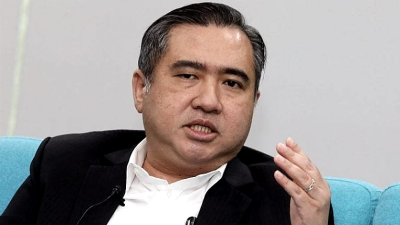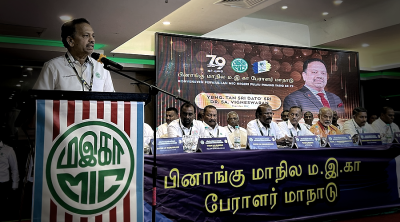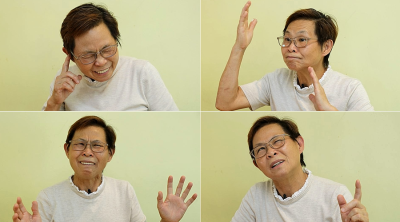
The Merdeka month has lost its focus this year.
In the past, when people saw national flags flying everywhere, the patriotic atmosphere would instantly be felt. Many would gladly respond to the government’s call to hang Jalur Gemilang at home, in shops and even on cars.
But this year, people hang the flag with apprehension, looking over their shoulders, afraid that if they hang it the wrong way, they might get targeted.
When one hangs the flag upside down, a normal reaction should be to offer a friendly reminder so the person can correct it.
It should not be like what some people do—taking out their phones to record, deliberately editing the footage and then uploading it to social media to spark an online public trial.
I truly cannot understand such behavior. Is it to seek attention, or is it an addiction to the thrill of “exposing” others’ mistakes?
The issue of the flag being hung upside down or painted wrongly is being endlessly magnified because politicians are not doing their job. Instead, the unscrupulous ones exploit the issue until it spirals out of control.
The upside-down flag incident at SJKC Chung Hua, Port Dickson is still unresolved.
While many Pakatan Harapan colleagues tried to calm the situation and defend the school and the disabled staff who made an honest mistake, Education Minister Fadhlina Sidek’s tough stance has shown no signs of softening.
Fadhlina’s attitude is puzzling. Since taking office, she has not shown a proactive side in education reform. Instead, she has repeatedly displayed a tough and uncompromising posture on certain matters—such as this flag incident—raising doubts about whether her governance priorities are misplaced.
As for major education issues, such as the “A-minus is not an A” controversy in the SPM examinations, she has not faced public questioning in open.
She avoided the core issues, and in the end, the controversy was only stopped after the Cabinet stepped in to “standardize the narrative.”
Her silence and retreat make people worry whether the same problem will recur next year when universities start the admission process.
Even more regrettable is that Fadhlina seems powerless against the “little Napoleons” in her ministry.
Even the public promises made by the Prime Minister can be easily undermined by these entrenched forces, making true implementation impossible.
The problems in public schools—from shortages of teachers, insufficient infrastructure, curriculum revisions to bullying and students openly vaping on campus—make people feel that Fadhlina has not fulfilled her responsibilities.
In the recent mysterious fall of a 13-year-old female student in Sabah, many felt that Fadhlina’s performance was unsatisfactory, criticizing her for lacking empathy and clear leadership.
She did not have the sense of responsibility and direction expected of her.
Fadhlina has also failed to establish an effective communication mechanism with education organizations.
Whenever these organizations question the policies or data of the Ministry of Education, she often adopts a tough stance and insists on her views, instead of listening with openness and engaging with the organizations. This high-handed style has not only eroded public trust in the ministry but has also alienated what should have been a partnership working together for educational development.
For Chinese education groups and the Chinese community, this attitude is felt even more deeply.
For years, Chinese education organizations have hoped to build constructive communication channels with the government to ensure the multi-stream education system is properly understood and safeguarded.
Yet such hopes have been repeatedly dashed under Fadhlina’s helm, making the decisions of the ministry appear even more out of touch with the real needs of a diverse society.
When those in power fail to act, opportunists take over, making matters worse.
Akmal’s actions have not fostered understanding or patriotism. Instead, they have made ordinary people fearful, silenced, and withdrawn—exactly the opposite of what a healthy democratic society should be.
Some have described politicians like Umno Youth chief Datuk Dr Muhamad Akmal Saleh as reacting hysterically to the flag incident, seizing the chance to score political points at the expense of the innocent, while creating fear and confrontation.
Dr Akmal dragged the school into a political storm, making the United Chinese School Committees’ Association of Malaysia (Dong Zong) and the United Chinese School Teachers’ Association of Malaysia (Jiao Zong) the target of public criticism.
What could have been an opportunity to learn or correct mistakes has turned into a public trial of humiliation and fear.
His actions have not fostered understanding or patriotism. Instead, they have made ordinary people fearful, silenced, and withdrawn—exactly the opposite of what a healthy democratic society should be.
Dr Akmal even got into a war of words over the flag issue with former DAP central executive committee member Datuk Teng Chang Khim, with one mocking the other as “stray dog” and “wild boar.”
One can’t help but wonder when will the politics become more rational and less toxic?
Before the school flag incident was even over, a business owner was “unfortunately” dragged into the flag controversy.
Dr Akmal was “delighted” and even threatened to mobilize people to “personally teach” the business owner a lesson.
In addition, one Penang Umno leader lodged a police report.
The business owner did not make the mistake intentionally and had already explained the matter—why make things difficult?
Even more baffling is that some DAP members joined Umno in this farce, and one Chinese scholar even made the shocking suggestion of stripping those hanging the flag upside down of their citizenship. Is it really that serious?
Dr Akmal’s self-appointed “judge” behavior amounts to indirect intimidation and provocation.
If such actions are not curbed, more people will fear hanging the flag, and worse, it could tear apart national unity.
On this matter, the Minister of National Unity should seize the opportunity to educate the public on how to treat the national flag correctly, rather than immediately resorting to legal threats against those who make unintentional mistakes.
The minister should stand with patriotic citizens, letting everyone feel that hanging the flag is an honorable and safe act—not something that will potentially bring trouble.
Only in this way can we stop people like Dr Akmal from acting recklessly.
Instead, encourage more Malaysians to hang the flag with joy and pride, creating a strong patriotic atmosphere and standing tall as responsible citizens.
(Anthony Chong Lip Teck is Sin Chew Daily Leader Writer.)
ADVERTISEMENT
ADVERTISEMENT






